Our main test involves using a DataColor Spyder Elite 5 Colorimeter to assess a display’s image quality. The device sits on top of the screen while the software generates colour tones and patterns, which it compares against predetermined values to work out how accurate the screen is.
The results show –
- A monitor’s maximum brightness in candelas or cd/m2 at various levels set in the OSD.
- A monitor’s contrast ratio at various brightness levels in the OSD.
- The brightness deviation across the panel.
- The black and white points
- The colour accuracy, expressed as a Delta E ratio, with a result under 3 being fine for normal use, and under 2 being great for colour-accurate design work.
- The exact gamma levels, with a comparison against preset settings in the OSD.
We first run this test with the display in its default, out-of-the-box state, with all settings on default. We then calibrate the screen using the Spyder software and run the test again.
We always test the display subjectively on the Windows desktop, using it for general tasks such as browsing and word processing, and with games as well, even if the display is not intended solely for that purpose. We pay careful attention to any artefacts, ghosting or motion blur, and enable any gaming specific features, such as adaptive-sync settings like G-Sync, using a compatible graphics card in our test PC.
In the case of the Philips, we performed the primary testing at the native 5K resolution in Off SmartImage preset mode. We also left the monitor at 60Hz (not that there were other options in this case). Our test system was equipped with an NVIDIA Quadro K2200, which is on the list as supporting 5K with this screen, a claim we found to be entirely true.
First off, the uncalibrated results show an amazing gamut, with 100 per cent sRGB coverage and a superb 98 per cent Adobe RGB. You really will be able to see ever colour nuance with this monitor.
On the other hand, the panel's brightness uniformity is merely mediocre. The bottom left-hand corner is a particular worry.
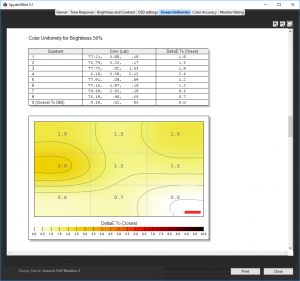
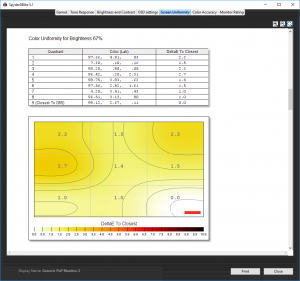


Fortunately, colour uniformity is much better, and in fact one of the most uniform we have seen.
Even at 100 per cent brightness, the recorded level is noticeably behind the 300cd/m2 specifiction. Contrast is also quite a bit off the stated 1000:1, although it is also reassuringly uniform above the 50 per cent brightness level, which is the range you will most likely be using. Colour temperature is similarly reasuringly stable, getting slightly warmer at 75 per cent and above but not noticeably so.
The Philips provides a decent variety of presets for common usage scenarios, and these are quite different in their characteristics. We performed our other tests with the Off preset, and the default brightness, which is 100 per cent. The Office preset drops the brightness down noticeably, but maintains the same contrast and only a slightly cooler white point. The Photo preset is identical to Off with 100 per cent brightness, but the Movie setting bumps up brightness so that it exceeds the rated 300cd/m2, alongside a noticeably pronounced contrast and much cooler colour temperature. The Game preset is similar to Movie, but with even more brightness but warmer colours. The Economy preset drops the brightness right down, as well as the contrast, but with the warmest colours of all.
The recorded gamma for each of the five gamma modes is pretty much exactly 0.1 over what Philips says it's supposed to be, except for Gamma 2.6 where it's even more wide of the mark at 2.8. With such consistency, though, it's surprising that these are not spot on. Philips could have just dialled things down by 0.1 in every case for a perfect score.
Uncalibrated, the Phlips achieves a reasonable colour accuracy of 3.26. This is somewhere in the middle of the pack
Next we calibrated the screen using the Spyder to see if this could improve matters.
The colour gamut is just as excellent as before, with 100 per cent of sRGB visible, and 98 per cent of AdobeRGB.
The Gamma level at 2.2 is still 2.3, so no improvement here.
Colour accuracy is markedly better to 2.09, which is now a very respectable performance.
Overall, the positive aspects outweigh the negative, with very good colour accuracy, good colour uniformity, and a truly excellent gamut, versus less stellar brightness uniformity and gamma presets that are a little understated from their true values. The huge amount of detail is the real benefit, though, which none of these tests assess. The quality of high-resolution content such as digital photos is very much evident. Once you have seen images in this kind of glory it's hard to go back to lower-resolution screens.
 KitGuru KitGuru.net – Tech News | Hardware News | Hardware Reviews | IOS | Mobile | Gaming | Graphics Cards
KitGuru KitGuru.net – Tech News | Hardware News | Hardware Reviews | IOS | Mobile | Gaming | Graphics Cards
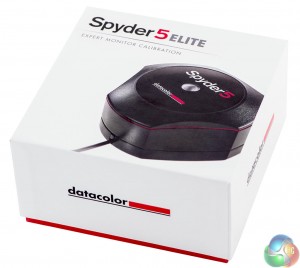
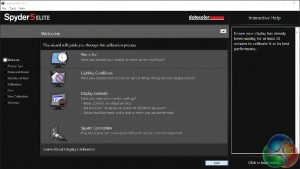
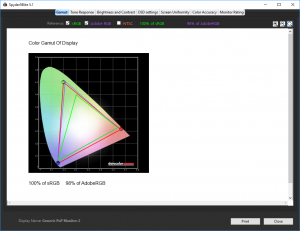

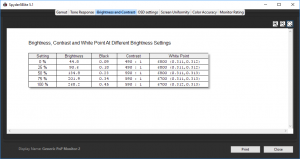
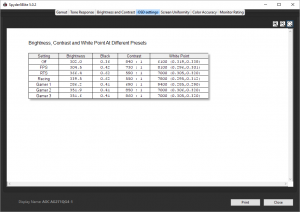
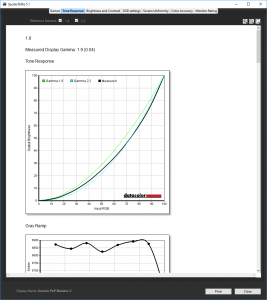



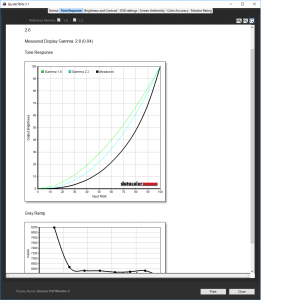
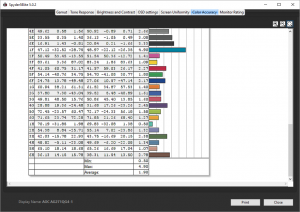

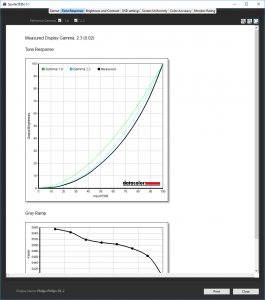

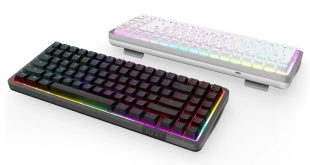
Is the picture on the monitor from a porn scene?
No, its not. get your mind out of the gutter !
It definitely is.
No freesync or G-sync?
And what’s with that response time??
It won’t sell if it’s expensive. So it’s rather cheap. XD
Google is paying 97$ per hour! Work for few hours and have longer with friends & family! !mj95d:
On tuesday I got a great new Land Rover Range Rover from having earned $8752 this last four weeks.. Its the most-financialy rewarding I’ve had.. It sounds unbelievable but you wont forgive yourself if you don’t check it
!mj95d:
➽➽
➽➽;➽➽ http://GoogleFinancialJobsCash95DirectSourceGetPay$97Hour… ★★✫★★✫★★✫★★✫★★✫★★✫★★✫★★✫★★✫★★✫★★✫★★✫★★✫★★✫★★✫★★✫★★✫★★::::::!mj95d:….,…..
That’s my wife you’re talking about there.
1 yr ago I decided to abandon my last work and that decision changed everything for me… I started freelancing at home, for this company I stumbled upon over internet, for several hours every day, and I earn much more than i did on my old job… Last paycheck i got was for $9k… Great thing about this job is that i have more free time for my loved ones… CHILP.IT/728813e
Yep.. It is!
Problem is, that screens are getting bigger pixel counts, way before GPU’s can actually provide them with anything close to 60Hz. This is certainly not a gaming monitor with a mediocre response rate (in gaming monitor terms) and a 60Hz refresh rate. Also, have you seen the difference between 4K and 5K? Your eyesight would have to be so acute to be able to tell the difference. And even then, I would question that a difference could be seen. Where the technology needs to develop is in OLED screens, but it still seems pretty embryonic with getting the picture to last more than a few years. Bottom line is… There is so much better out there, that will give so much more than just pixel count.
I’ve probably mentioned this before but any chance you can try the screens in half and quarter resolution to see how they look out of native? In this case 2560 x 1440 and 1280 x 720. Input lag doesn’t matter with the types of games I play but many (especially the older ones) dont allow you to scale the GUI so on a 4k/5k screen of this size they’d be unreadable. Apparently there is some variation in the visual performance of monitors out of native, unfortunately no reviewers ever test for it 🙁
I have this Monitor and it has 1 Big problem! It’a not really Flicker-Free!
I bought it after verifying on Phillips product page;
http://www.philips.co.uk/c-p/275P4VYKEB_00/brilliance-5k-lcd-monitor-with-perfectkolor
But l found out that any brightness less then 100% you get Flicker because it uses PWM to control the brightness, so it’s not very comfortable for you eyes. It could be great review if you could mention it :-(.
You can see the horizontal waves in the attached photo I took now.
P.S – there is no SmartUniformity option in the OSD menu!
https://uploads.disquscdn.com/images/63486a88011e06fd4c617713443fe7b92273fe5568cc66683e01b6104a35302d.jpg